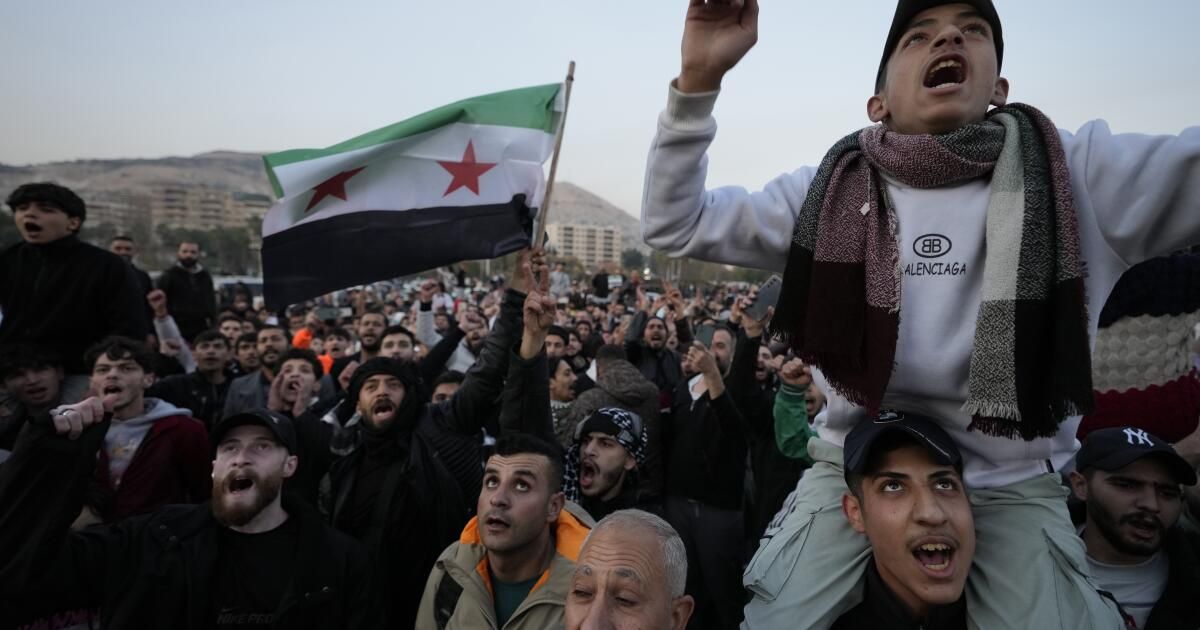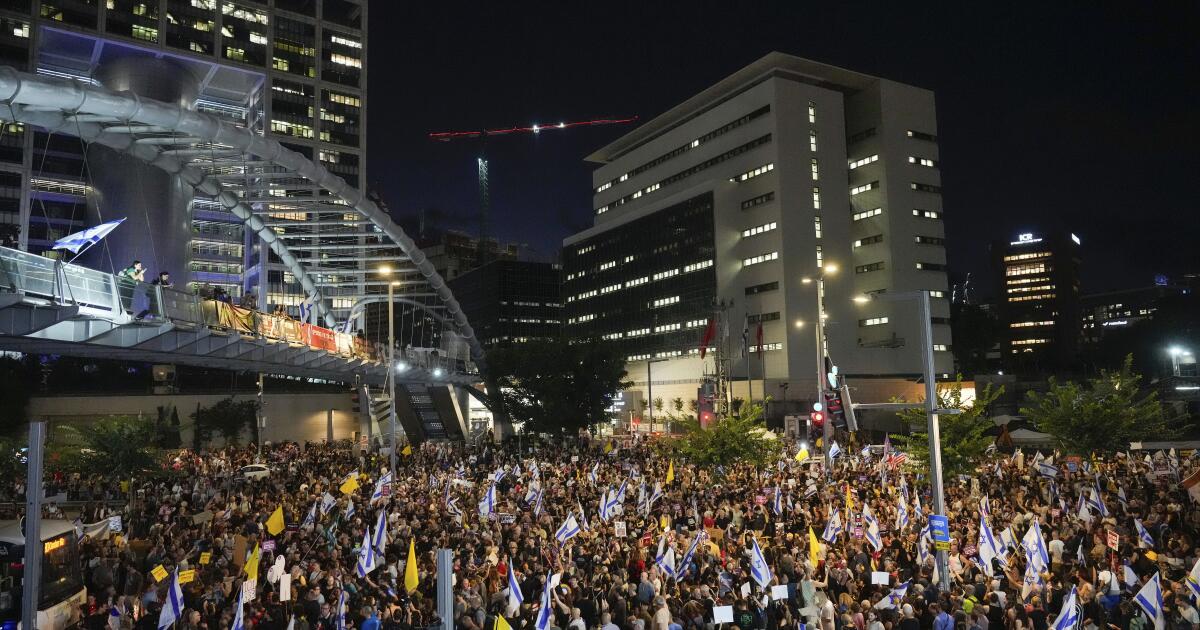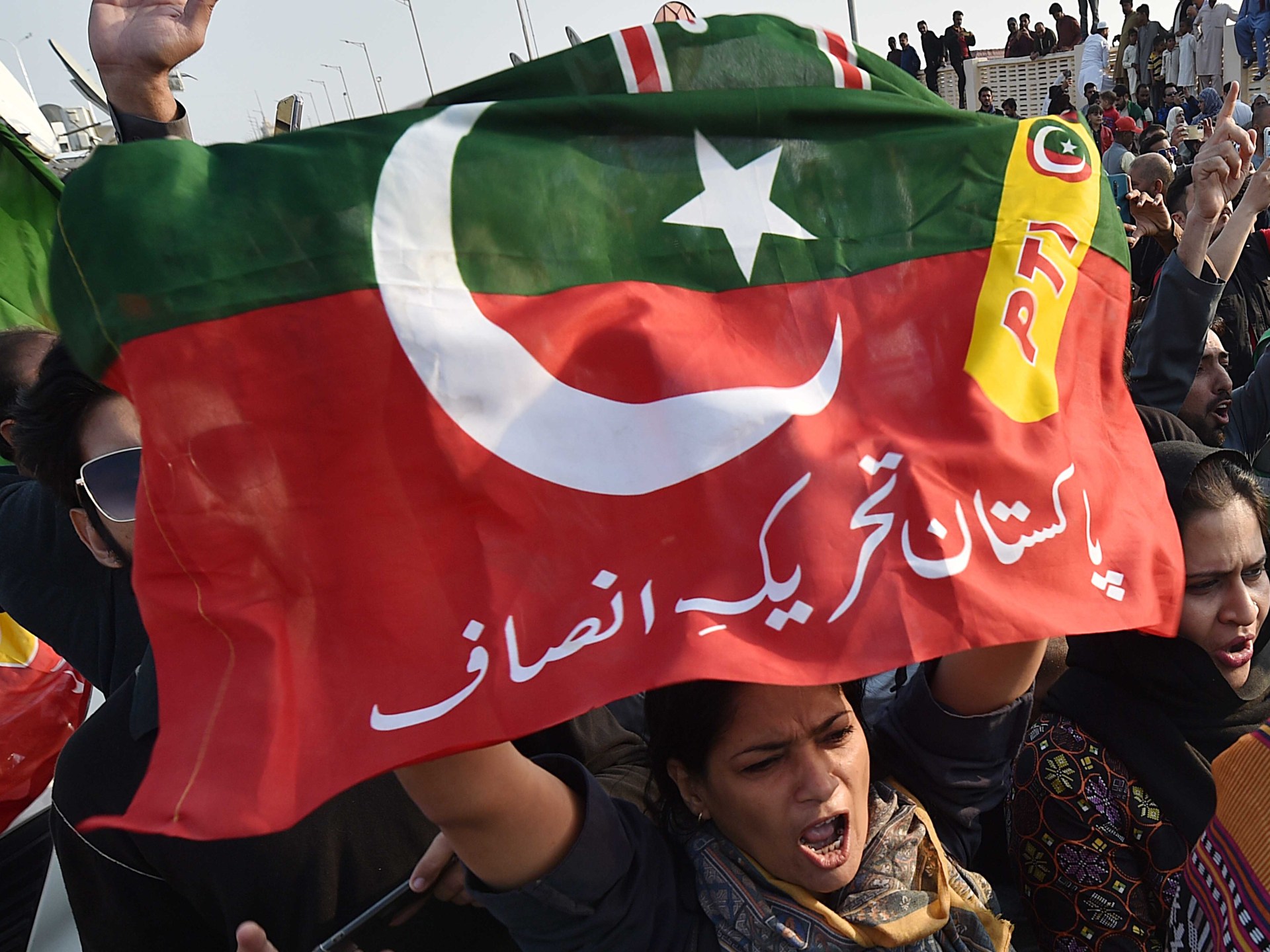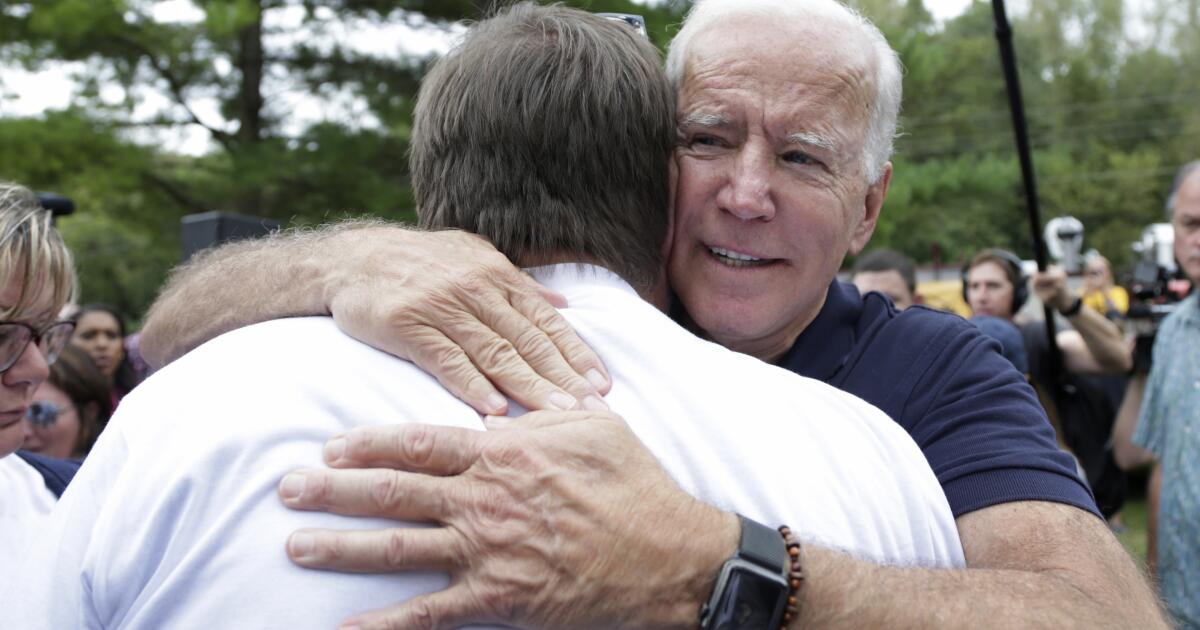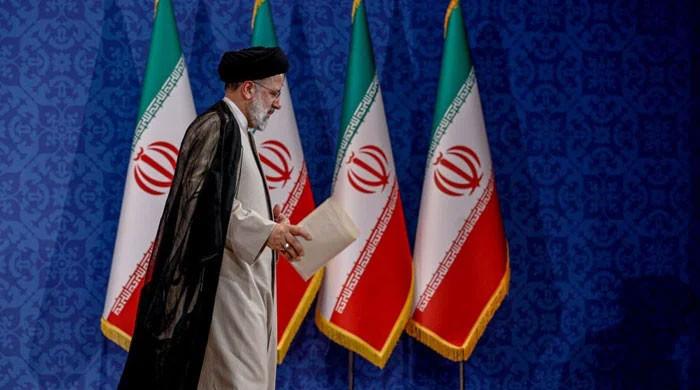DAMASCUS, Syria — They arrived by the thousands, flooding Damascus' Umayyad Square with a sea of cars and people for an impromptu parade to celebrate the stealthy escape of former Syrian President Bashar Assad the previous morning.
“Lift your head high. “You are a free Syrian,” a voice shouted from a bank of speakers atop a van parked nearby. To one side, a group of youths and children milled about an abandoned Syrian army tank, chanting “May Allah curse your soul, Hafez,” in reference to Assad's father, Hafez, who ruled Syria for three decades before his death.
Meanwhile, dozens of militants maintained a near-constant staccato of celebratory machine gun fire, leaving a carpet of spent cartridges on the asphalt.
To one side, a young man trampled charred copies of a tome titled “The Speech on Principles and National Decision of President Bashar Al-Assad,” which had a portrait of the former president.
“That bastard, we've finally gotten rid of him,” he said, emphasizing the words by stepping on Assad's image before rushing to join the crowd in the center of the square.
Over the centuries, Damascus has been many things: a metropolis that served as the center of an Islamic caliphate; a hotbed of Arab anti-colonial agitations; and seat of a political dynasty that was one of the defining forces of the contemporary political landscape of the Arab world. Now it seeks a new identity, as its residents wake up to the post-Assad reality and the thousands of scruffy, bearded militants who, seemingly overnight, have sprouted up at every major intersection and state institution.
For many Damascenes, the dominant feelings are a mixture of joy and fear.
“We are happy, of course, but we are afraid of what is coming,” said Muna Maidani, a 28-year-old woman who was walking near Umayyad Square, one of the most famous monuments in the Syrian capital, with her two children.

A man holds the flag of the Syrian opposition as he walks past a poster of ousted Syrian President Bashar Assad in the capital Damascus, December 9, 2024.
(Omar Sanadiki / Associated Press)
Was the entry of the rebels into the capital a surprise for Maidani?
“Sure,” he said.
“But a good one,” interrupted her 22-year-old sister Shaymaa. The two grimaced as a gunman raised his rifle with one hand in the air and let out a volley.
“But I hope we will end the shooting soon,” Shaymaa added as she quickly walked away from the scene of the shooting.
For a good number of militants, many of whom come from Syria's rural regions, it was the first time they had entered the capital.

People celebrate in Umayyad Square in Syria on December 9, 2024.
(Omar Sanadiki / Associated Press)
“It's the capital of Syria, so of course it's beautiful. It was ruled by a tyrant, but now we will build a new Syria,” said Abdul-Ilah Hmoud, a 24-year-old from the northwestern province of Idlib, governed by Hayat Tahrir al Sham, the Islamist faction. and former Al-Qaeda affiliate, who leads the rebel coalition.
“We will do it as a European country, where everyone has rights.”
Elsewhere, there was less jubilation than confusion at the speed of Assad's fall. The road to Damascus from the Lebanese border is lined with military bases and checkpoints, and a drive on Monday morning hinted at what appeared to be a complete collapse in the army's ranks as opposition fighters with the rebel coalition attacked the capital.
Pointing proudly to a disabled tank sitting to one side with three children moving along its turret, Mohsen Haykal, a bearded 32-year-old militant with a beard of burnt copper, spoke disdainfully of his now-defeated adversaries.
“They put up no resistance at all,” Haykal said, as he guarded a highway checkpoint nearly 15 miles west of the capital's entrance. “We control it. “His crew just ran away.”
On a nearby hill overlooking the road was the base of the chemical warfare battalion of the 4th Armored Division, an elite unit led by Assad's younger brother, Maher, and which had acted as a kind of praetorian guard for his government. However, it also seemed to have vanished, with no signs of recent activity on the base except a discarded uniform and a peeled tangerine on a desk in the command office.
So far, the militants appear to have largely managed to maintain order in the capital, with little initial looting (at the presidential palace, the central bank, not to mention ATMs and SIM card vending machines in the city) taking place. saw Sunday. .
In a statement on Monday, Hayat Tahrir al Sham announced “a general amnesty for all military personnel recruited under compulsory service,” adding that “their lives are safe” and prohibiting any revenge attacks.
Assad's fall ends more than six decades of Baath Party rule that sought to center Syria as a leader in the Arab world but instead left it plagued by corruption and impoverished.
However, for Syria's minority communities, the alternative now on offer, namely a government dominated by the ideology of Islamist militants, leaves little room for optimism.
“The way I see it, we have two options, the Egyptian model or the Iraqi model,” said Jamil Yashou, 38, a priest at St. Teresa's Chaldean Catholic Church in the capital's Christian neighborhood. The Egyptian model, in his account, referred to the Muslim Brotherhood, who came to power after the 2011 Arab Spring revolutions in Egypt, but whose government was soon ousted in a military-backed coup and replaced by an autocrat The latter refers to the sectarian bloodshed that followed the ouster of Iraqi strongman Saddam Hussein.
Yashou was no fan of Assad: one of the country's notoriously strict intelligence services had detained him for an off-color comment about the president in a phone call with a friend. But he fears that what follows – the chaos of a post-Saddam Iraq, or the aborted Islamist government of post-Mubarak Egypt – could prove to be the most important legacy of the Syrian conflict.
“I was happy when I saw Assad go,” he said. “But I fear a constitution that will make me a second-class citizen.”

